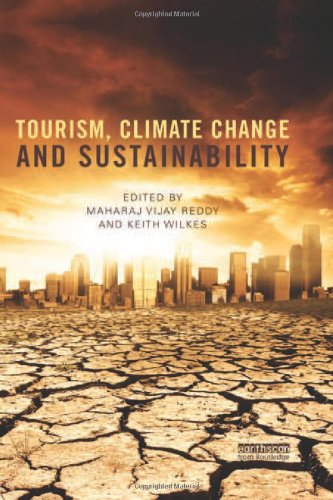

Most ebook files are in PDF format, so you can easily read them using various software such as Foxit Reader or directly on the Google Chrome browser.
Some ebook files are released by publishers in other formats such as .awz, .mobi, .epub, .fb2, etc. You may need to install specific software to read these formats on mobile/PC, such as Calibre.
Please read the tutorial at this link. https://ebooknice.com/page/post?id=faq
We offer FREE conversion to the popular formats you request; however, this may take some time. Therefore, right after payment, please email us, and we will try to provide the service as quickly as possible.
For some exceptional file formats or broken links (if any), please refrain from opening any disputes. Instead, email us first, and we will try to assist within a maximum of 6 hours.
EbookNice Team

Status:
Available0.0
0 reviewsThis book addresses many of the key themes that are seen as challenges to achieve sustainability and to mitigate climate change impacts in the near future, in the tourism sector. In particular it focuses on the economic drivers for growth in tourism as they relate to sustainable development, low-carbon travel and climate change impacts. A major feature is the integration of climate change and sustainability challenges, rather than treating them separately or with sustainability as an add-on.
The first group of chapters addresses conceptual issues concerning the relationships between sustainability, climate change and tourism. The second section considers regional, national and international responses and initiatives, including those of agencies such as UNESCO World Network of Biosphere Reserves, and the UK’s South West Tourism. The third part provides a range of investigative research, including topics such as air travel and coral reef tourism, and case studies from locations such as southern Africa, Scandinavia and the Pacific islands. Other research dimensions discussed in the book are drawn from Brazil, Hawaii, England, Australia and New Zealand. Overall, the book focuses on some of the most crucial challenges facing tourism in developed and developing countries.